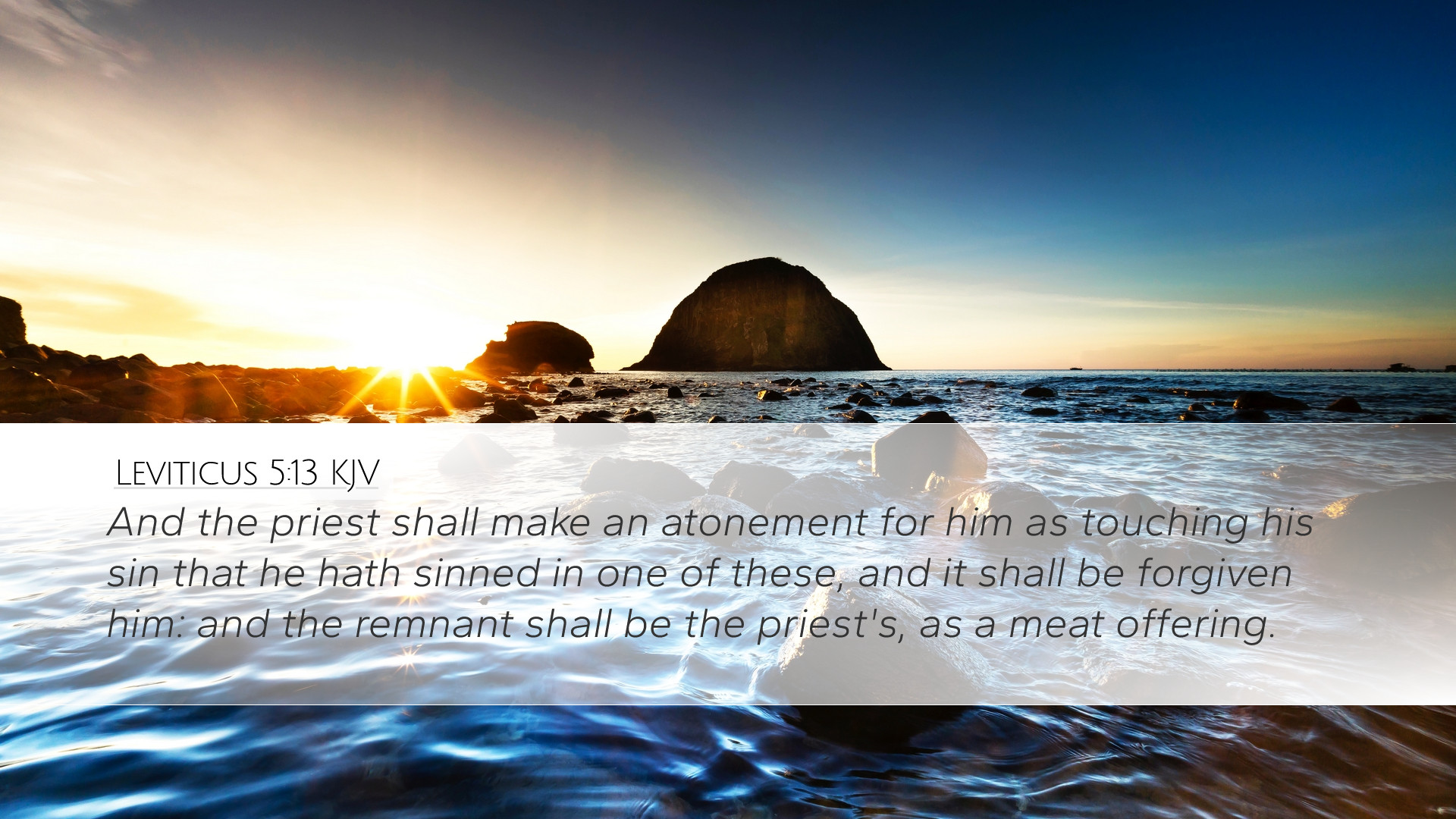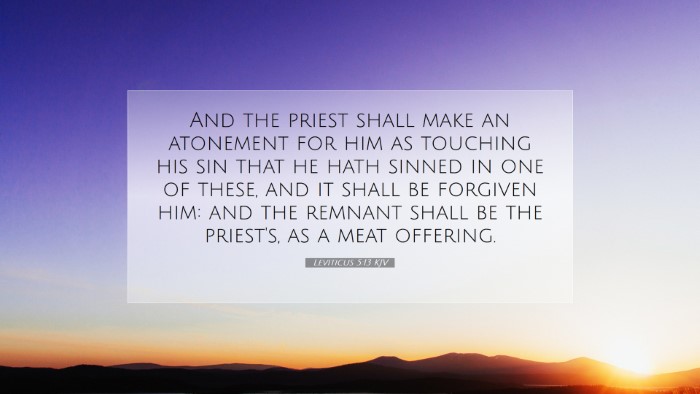Commentary on Leviticus 5:13
Leviticus 5:13 states:
"And the priest shall make an atonement for him concerning his sin that he hath sinned in one of these; and it shall be forgiven him: and the remnant shall be the priest's, as a meat offering." (KJV)
Introduction
This verse falls within a section of Leviticus that outlines laws regarding sin offerings and atonement. In the context of the sacrificial system, it reflects God's provision for sin and the importance of atonement in maintaining a righteous relationship with Him. Here, we examine commentary insights on this significant verse from respected theologians and biblical commentators.
Context and Background
Leviticus is a book that provides detailed instructions on holiness, purity, and the regulations surrounding worship in ancient Israel. It emphasizes the need for atonement for sins and the mechanisms provided by God for His people to reconcile with Him.
Understanding the Sin Offering
Matthew Henry, in his commentary, elaborates on the various sin offerings and the principles surrounding them. The significance of each offering illustrates the gravity of sin and the necessity of atonement:
- Nature of Sin: Sin is seen as a transgression against God's commandments. Even unintentional sins could sever the relationship between God and His people.
- Need for Atonement: The necessity of making offerings highlights that reconciliation is essential to restore fellowship with God.
- Role of the Priest: The priest acts as a mediator who facilitates atonement, underscoring that the process of repentance and reconciliation is communal and not solely individualistic.
Theological Implications
Albert Barnes emphasizes the theological aspects embedded in this verse, particularly the concepts of sin, guilt, and divine forgiveness:
- Divine Justice and Mercy: This verse illustrates the balance between God's justice—dealing righteously with sin—and His mercy—providing a means for forgiveness through sacrificial offerings.
- Assurance of Forgiveness: The phrase "it shall be forgiven him" is crucial, indicating that sincere repentance and following prescribed atonement lead to restoration.
- Community Aspect: The division of the offering, where the priest retains the remnant, reflects God's provision for the priestly class and the communal nature of worship and sacrifice.
Application for Today
The insights from Adam Clarke address the contemporary relevance of this verse and how its principles can be applied to modern faith lives:
- Recognition of Sin: Believers are encouraged to recognize even unintentional sins in their lives and to approach God earnestly for atonement.
- Role of Christ as Mediator: In the New Testament context, Christ fulfills the role of the ultimate sin offering, offering forgiveness and mediation that supersedes the Old Covenant.
- Call to Accountability: The priestly role today may be reflected in pastoral care within the church, emphasizing the importance of community and leadership in facilitating forgiveness and encouragement for believers to seek reconciliation with God.
Conclusion
In conclusion, Leviticus 5:13 encapsulates profound theological truths and significant implications for personal faith and communal worship. Through the lens of historical commentary, we discern the intricacies of sin, the necessity of atonement, and the enduring promise of divine forgiveness. As we study this verse, may we be reminded of the importance of holy living, the assurance of God’s grace, and the collective responsibility of the faith community in seeking right relationships both with God and with one another.


